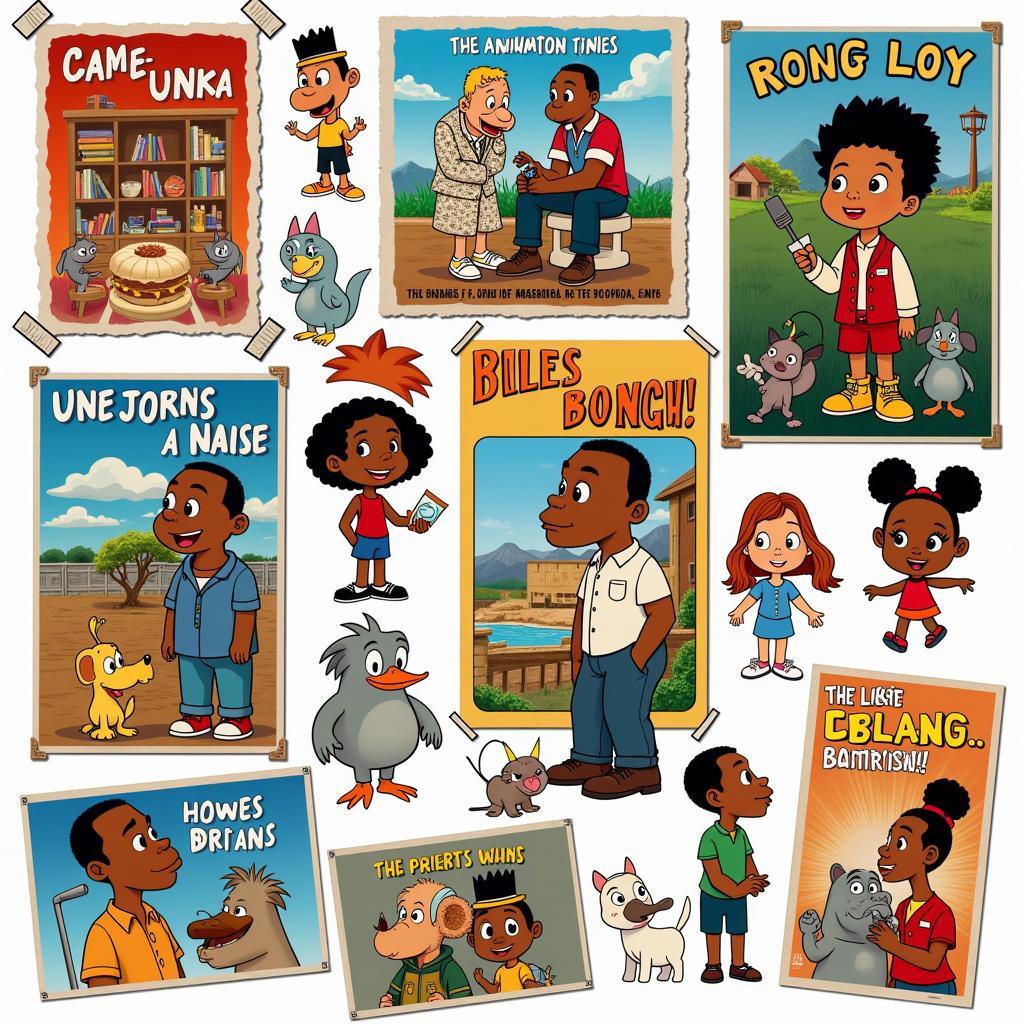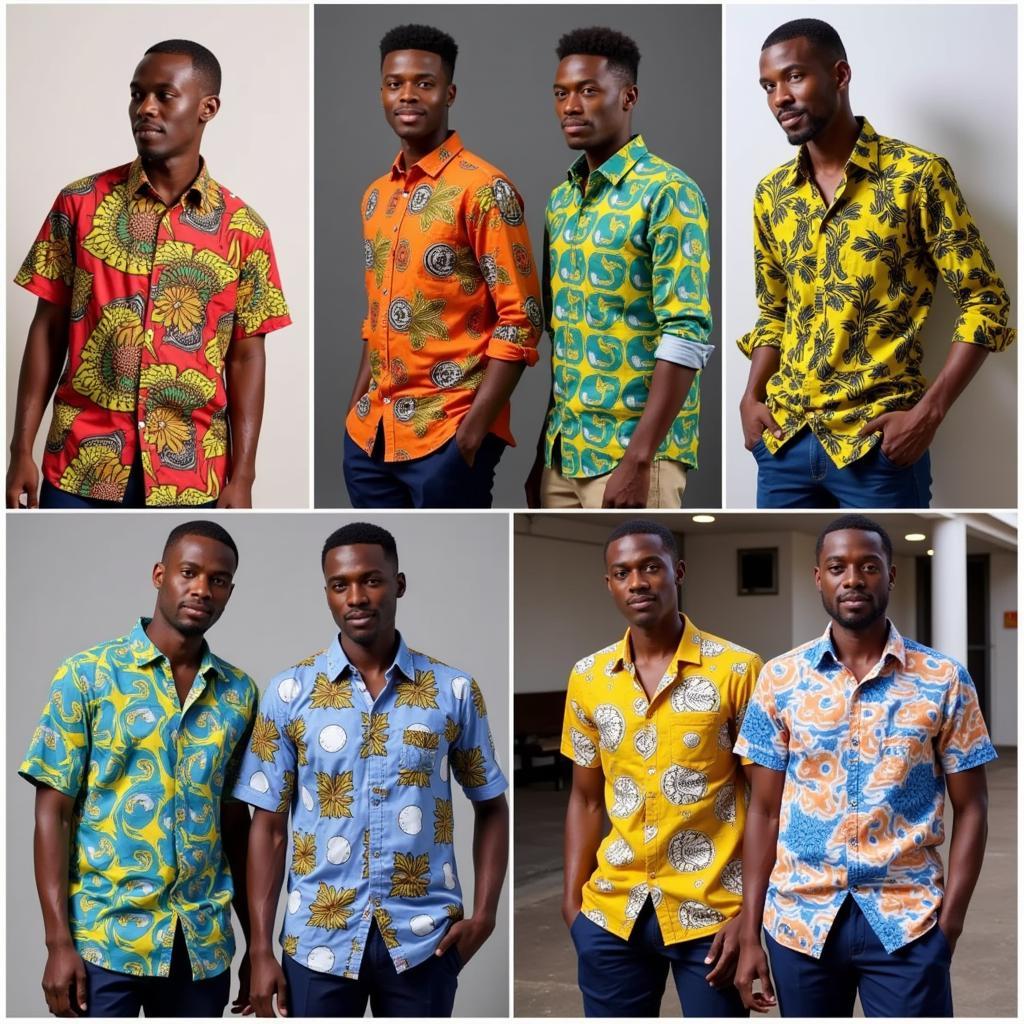African Fables, Folk Tales, and Stories: A Journey Through Culture
African fables, folk tales, and stories are more than just bedtime stories; they’re a vibrant tapestry woven with the threads of history, culture, and wisdom. They offer a unique window into the diverse traditions, beliefs, and values of the continent’s many peoples, passed down through generations by the captivating art of oral storytelling.
Unraveling the Magic of African Storytelling
For centuries, stories have been the heart of African communities, serving as a powerful tool for education, entertainment, and preservation of cultural heritage. From the bustling marketplaces of Marrakech to the serene savannas of the Serengeti, stories echo with the rhythm of life, connecting people to their past and shaping their future. African fables, folk tales, and stories are not just simple narratives; they’re intricate expressions of a people’s identity, reflecting their relationship with the natural world, their social structures, and their spiritual beliefs. These narratives often feature animal characters imbued with human-like qualities, mythical creatures, and powerful spirits, all intertwined with moral lessons and profound insights into the human condition.
Exploring the Diverse Genres of African Narratives
African storytelling encompasses a rich variety of genres, each with its own unique characteristics and purpose. Fables often use animal characters to convey moral lessons, while folk tales delve into the realm of magic and adventure, often explaining natural phenomena or cultural practices. Myths, on the other hand, explore the origins of the world and humanity’s place within it, often featuring gods, goddesses, and other supernatural beings. These diverse genres offer a multifaceted perspective on African culture, providing a glimpse into the complex tapestry of beliefs, values, and traditions that shape the continent’s identity.
The Significance of Oral Tradition in Preserving African Narratives
Oral tradition is the lifeblood of African storytelling. For generations, stories have been passed down from one generation to the next through the spoken word, preserving the rich cultural heritage of the continent. This oral tradition is more than just recitation; it’s a dynamic and interactive process, where stories are adapted and reinterpreted to resonate with contemporary audiences. The storyteller becomes a living archive, a vessel through which the wisdom and experiences of ancestors are transmitted to future generations.
The Role of Griots in West African Culture
Griots, the traditional storytellers of West Africa, play a crucial role in preserving and disseminating history, genealogy, and cultural knowledge. These highly skilled orators are not merely entertainers; they are keepers of the collective memory, transmitting vital information through music, poetry, and captivating narratives. Their presence at important events, such as weddings, funerals, and political gatherings, underscores their vital role in society.
African Fables, Folk Tales, and Stories in Modern Times
While oral tradition remains a vital aspect of African storytelling, these narratives are increasingly finding new platforms for dissemination, including books, films, and digital media. This evolution allows African stories to reach a global audience, sharing the continent’s rich cultural heritage with the world. This transition presents both opportunities and challenges, as preserving the authenticity and integrity of these narratives in new mediums becomes increasingly important.
The Impact of Technology on African Storytelling
Technology has played a significant role in expanding the reach of African fables, folk tales, and stories. Online platforms, digital archives, and social media have opened new avenues for sharing and preserving these narratives, ensuring that they continue to resonate with future generations. These platforms also offer opportunities for intercultural dialogue and exchange, fostering a deeper understanding of African cultures across the globe.
Conclusion: Keeping the Flame of African Storytelling Alive
African fables, folk tales, and stories are a testament to the power of narrative to connect us to our past, illuminate our present, and inspire our future. These narratives offer a rich and multifaceted perspective on African culture, offering invaluable insights into the continent’s diverse traditions, beliefs, and values. By continuing to share and celebrate these stories, we ensure that the flame of African storytelling burns brightly for generations to come.
FAQ:
- What is the significance of animal characters in African fables?
- How do griots contribute to the preservation of African history?
- What are some examples of popular African folk tales?
- How has technology impacted the dissemination of African stories?
- Where can I find resources to learn more about African folklore?
- What are some common themes explored in African myths?
- How are African stories being adapted for modern audiences?
For any assistance or further inquiries regarding African culture and traditions, please do not hesitate to contact us. You can reach us at +255768904061 or email us at [email protected]. Alternatively, you can visit us at our office located in Mbarali DC Mawindi, Kangaga, Tanzania. We have a dedicated customer service team available 24/7 to assist you. We also encourage you to explore our other articles on African culture and history available on our website.


